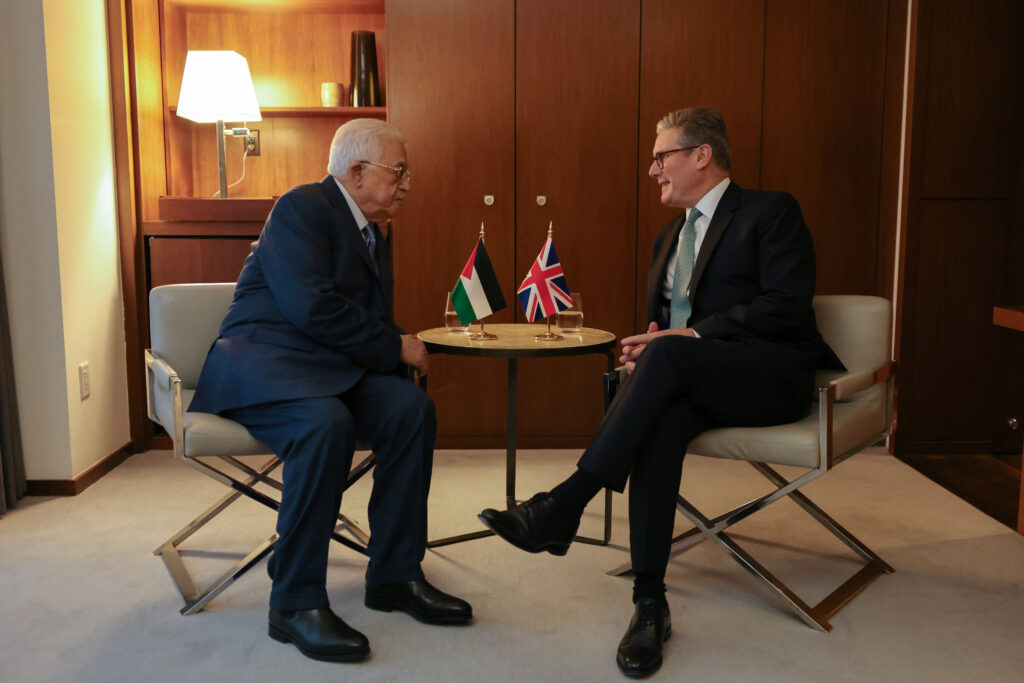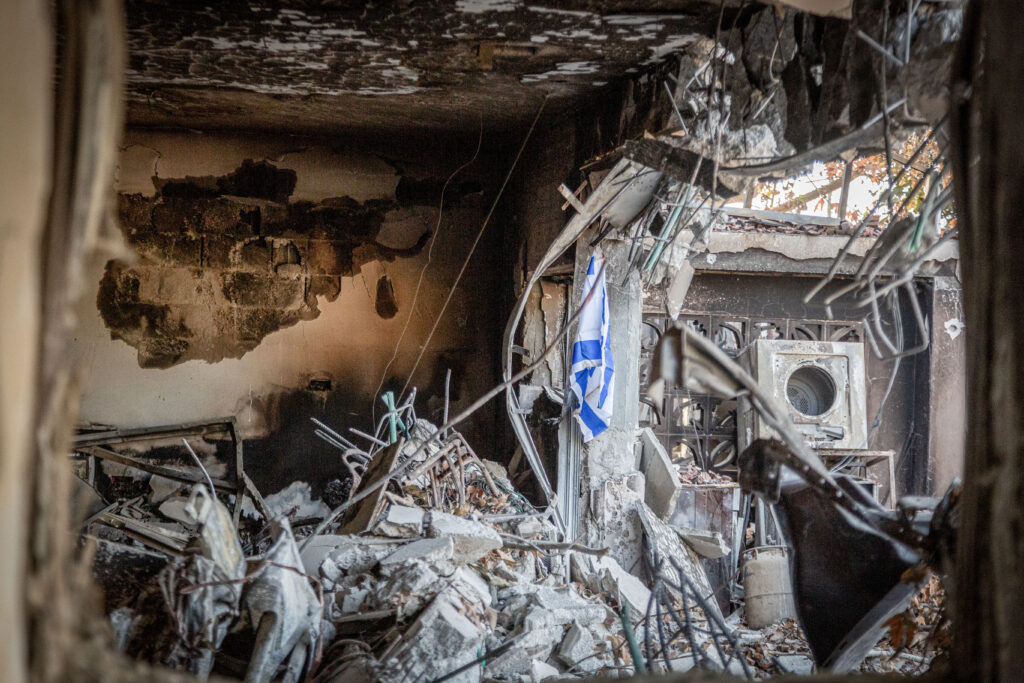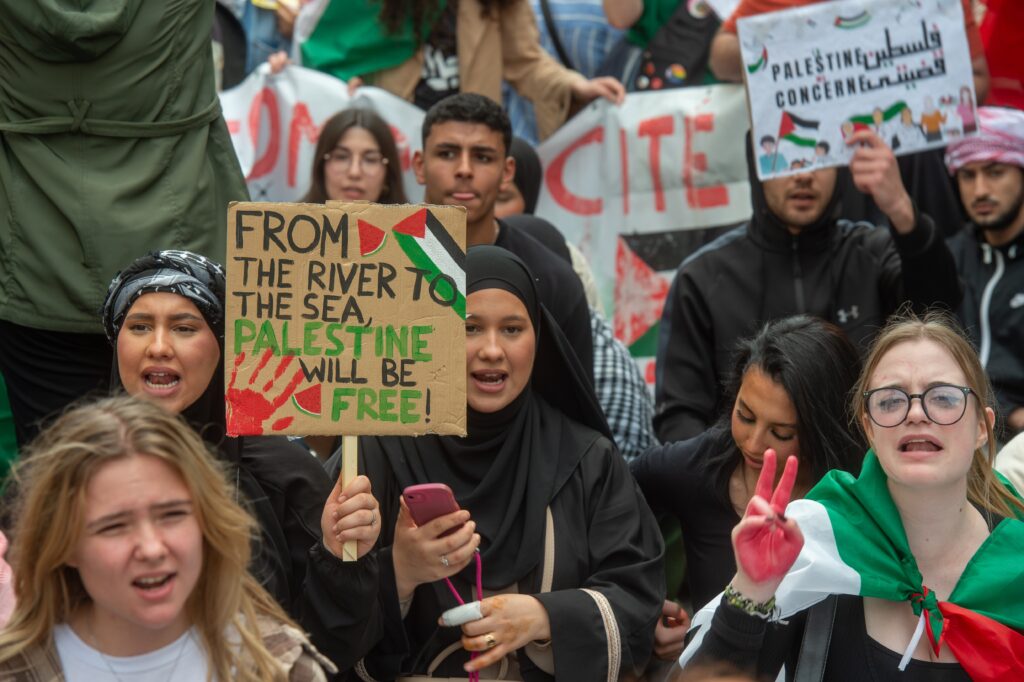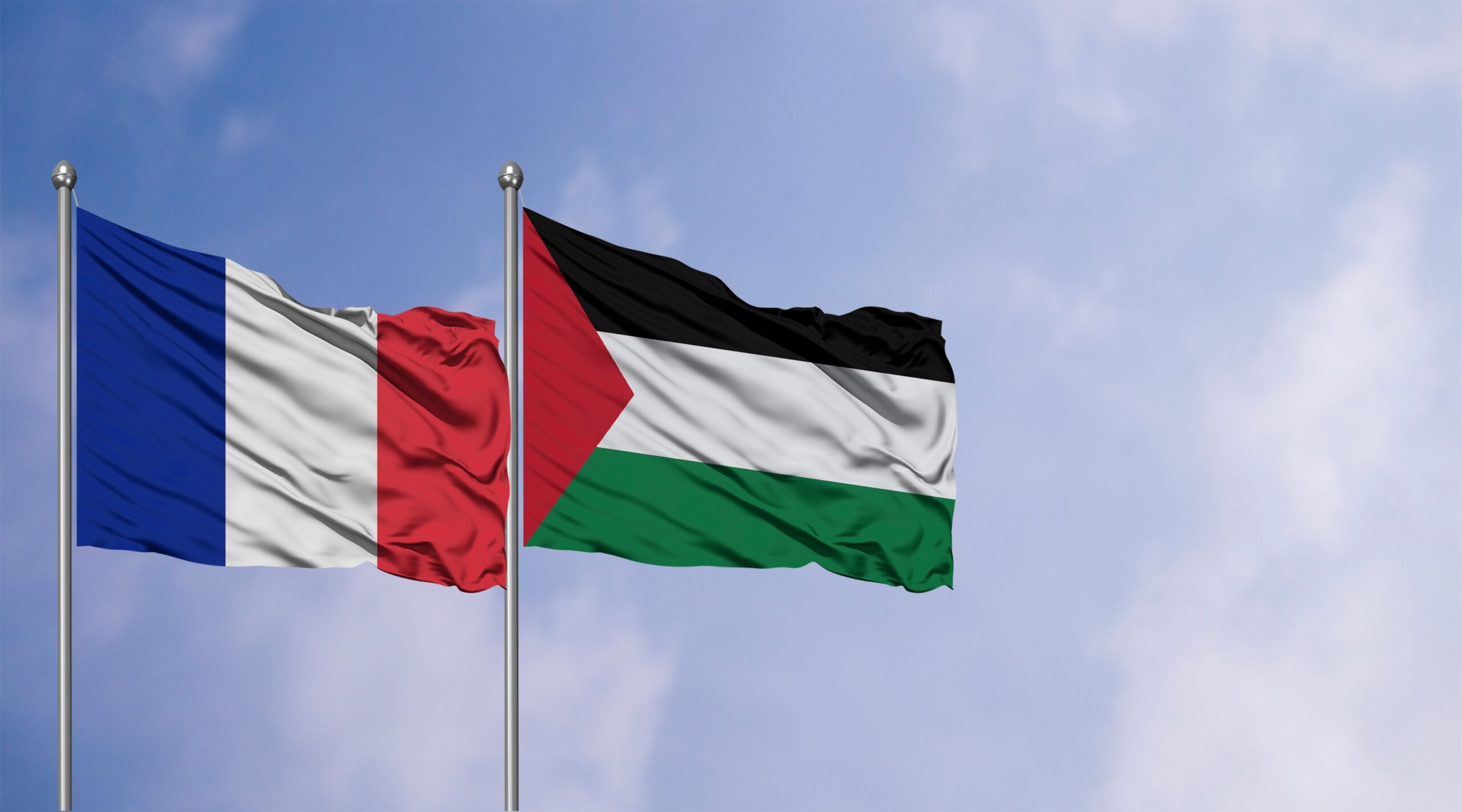In a move that threatens to upend decades of diplomatic consensus, the United Kingdom and France have announced their intent to unilaterally recognize a Palestinian state at the upcoming United Nations General Assembly in September—unless Israel takes a series of urgent steps to stop the war in Gaza and recommit to a two-state solution.
While presented as a humanitarian and diplomatic gesture, critics argue the move rewards Hamas, violates existing peace agreements, and even contradicts international law—all while exposing deep inconsistencies in the very framework used to define Palestinian identity and statehood.
UK Prime Minister Keir Starmer informed his cabinet this week that unless Israel:
- Establishes a permanent ceasefire in Gaza,
- Formally renounces any intention to annex Judea and Samaria, and
- Commits to a peace process culminating in a two-state solution,
The United Kingdom will formally recognize a Palestinian state in September.
It should be noted that there was no mention of conditions expected from the Palestinians or Hamas, implying that the ceasefire will be unilateral and incumbent solely upon Israel. There was also no mention of the hostages being held in Gaza.

Israel objects to calls for a ceasefire with Hamas primarily because of past experience showing that the terror group routinely exploits ceasefires to regroup, rearm, and prepare for further attacks. For over a decade, Israel has entered into multiple ceasefire agreements with Hamas—often brokered by Egypt or the United Nations—only to see them violated repeatedly by Hamas. Notable examples include the 2014 Gaza war (Operation Protective Edge), during which Hamas broke numerous humanitarian ceasefires, often using the lulls in fighting to launch rockets, reposition fighters, and build up its tunnel infrastructure. In the years that followed, Hamas continued to fire rockets at Israeli civilians even during supposed truces, leading many Israelis to view ceasefires not as steps toward peace, but as temporary tactical pauses used by Hamas to recover and prepare for the next round of violence.
The most devastating example of Hamas’ disregard for ceasefires was on October 7, 2023, when Hamas launched an unprecedented cross-border massacre on Israeli civilians, breaking a period of relative calm with a surprise attack that killed over 1,200 people and triggered the current war. This betrayal of apparent calm confirmed for many Israelis that Hamas is not a partner for peace but a persistent and deceptive enemy. Calls for a ceasefire today, in this context, are seen not only as premature, but as potentially dangerous—a diplomatic lifeline that could allow Hamas to survive, regroup, and strike again. For Israel, true peace requires the dismantling of Hamas’ military capabilities—not another cycle of violence and temporary truces.
“Recognition of a Palestinian state has to be one of the steps toward peace,” Starmer said. “I am unequivocal about that… but it must be part of a wider plan that includes lasting security for both Palestinians and Israelis.”
The announcement comes amid increasing pressure from Starmer’s own Labour Party. A letter signed by more than 220 Members of Parliament, including over half of Labour MPs, called on the government to act swiftly, describing recognition as a “powerful step” toward justice and peace.
France has already declared its intention to recognize a Palestinian state in September, without conditions or concessions from Israel. French President Emmanuel Macron has reportedly encouraged Starmer to follow suit, even as Paris now faces serious allegations of covert contact with Hamas.

A bombshell report from Israel’s Channel 12 revealed that senior French intelligence officials met with Hamas leaders in Qatar in 2020. According to documents uncovered by Israeli forces in Gaza, a French official declared:
“I come with President Macron’s approval… We French are historically close to the Palestinian struggle.”
Hamas officials, including Mousa Abu Marzook and Khaled Mashal, responded by reaffirming their commitment to Israel’s destruction.
“We will fight until victory… This land is ours,” they said—allegedly without objection from the French envoy.
While France’s Foreign Ministry dismissed the allegations as “baseless,” Israeli officials see the timing of France’s recognition announcement as a clear indication of political sympathy with Hamas’s goals—if not its methods.
Israeli Prime Minister Benjamin Netanyahu condemned both the UK and France, warning:
“A jihadist state on Israel’s border today will threaten Britain tomorrow. Appeasing jihadist terrorists has always failed. It will fail for you, too.”

He added that the proposed recognition constitutes “punishment of the victims” of Hamas’s October 7 massacre and violates the Oslo Accords, which require that any resolution to the Israeli-Palestinian conflict—including statehood—must result from direct bilateral negotiations.
Beyond political backlash, legal experts have raised serious questions about the validity of a unilateral declaration of Palestinian statehood under international law.
One of the greatest legal contradictions in the push for Palestinian statehood stems from UNRWA’s unique definition of Palestinian refugees.
Unlike the UN’s universal refugee definition, which applies only to first-generation individuals displaced by conflict, UNRWA classifies Palestinians as refugees in perpetuity, with the status inherited across generations—even for those who have never lived in pre-1948 Israel or its surrounding territories.
This creates a legal paradox:
If most Palestinians—including those in Gaza and Judea and Samaria—identify as stateless refugees, how can they simultaneously claim citizenship in a sovereign Palestinian state?
Under international law, a state must have:
- A defined territory
- A permanent population
- A functioning government
- The capacity to enter into foreign relations
The refugee identity, sustained and expanded through UNRWA, undermines the permanence of population and political identity required for sovereignty.
BREAKING: President Trump on French President Macron wanting to recognize a Palestinian state:
— Eyal Yakoby (@EYakoby) July 25, 2025
"Here’s the good news, what he says doesn’t matter. His statement doesn’t carry any weight."
pic.twitter.com/vuiI1DOXdx
Critics also point to the UK’s historic inconsistency on Palestinian territorial claims. From 1948 to 1967, Jordan illegally occupied Judea and Samaria, an occupation recognized only by the UK and Pakistan, despite violating international norms and the UN Partition Plan.
During this period, Jordan annexed the territory, denied Jewish access to holy sites in Jerusalem, and destroyed Jewish religious infrastructure. The UK’s recognition of this illegal occupation stands in sharp contrast to its current stance against Israeli settlement in the same areas.
This historical precedent raises further questions: if Britain was willing to recognize Jordan’s illegal occupation, why is it now treating Israeli control—even in areas with clear historic and legal claims—as illegitimate?
Hamas welcomed France and the UK’s announcements, calling them “a political development that reflects growing international conviction,” and expressing hope that they will “represent political and moral pressure on the Israeli occupation.”
President Donald Trump pushed back, warning:
“Hamas shouldn’t be rewarded with statehood after slaughtering civilians.”
Many warn that these moves legitimize the political goals of a terrorist organization whose charter explicitly calls for the destruction of Israel.
With France and the UK now leading the charge toward recognition, the fragile consensus of the post-Oslo era is unraveling. What was once a multilateral framework for negotiated peace may be replaced with unilateral declarations, legal contradictions, and growing legitimacy for actors like Hamas.
The ramifications extend beyond Israel and Palestine. By advancing statehood outside of negotiated terms, the UK and France may be undermining the very international legal standards they claim to uphold, creating a precedent that could destabilize other protracted territorial disputes worldwide.




